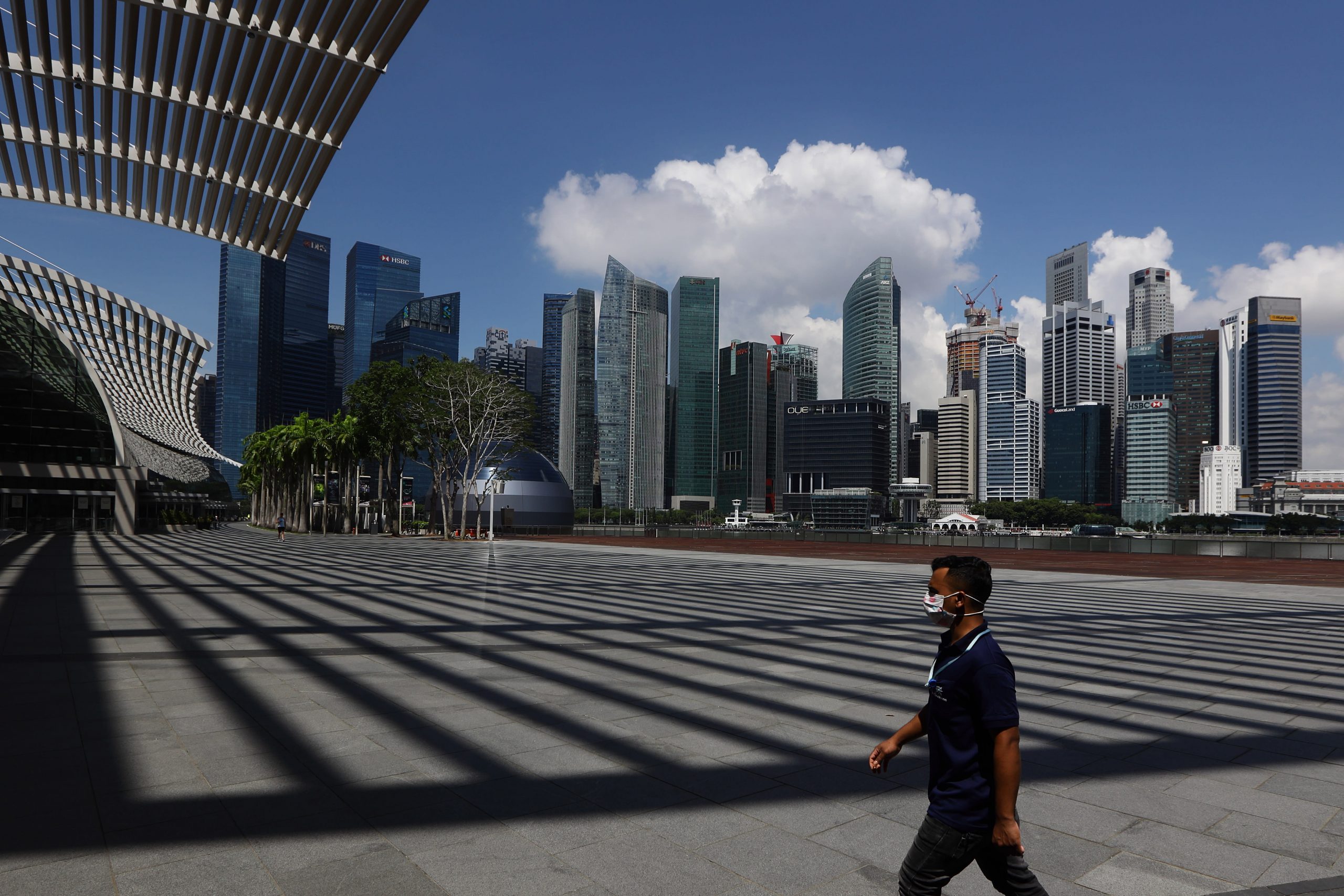After a strong run last year, the profitability of Singapore banks is expected to fall sharply in 2020. That’s due to the coronavirus pandemic, as well as a crash in oil prices that brought down some of the major energy traders in the Asian financial center.
A glimpse of that earnings hit could come this week as DBS Group Holdings, the largest bank in Singapore and Southeast Asia, is scheduled to release its first-quarter financial report card on Thursday. DBS’ earnings release will be followed by United Overseas Bank next Wednesday, and Oversea-Chinese Banking Corp next Friday.
Estimates by Refinitiv showed that net profit at all three banks could fall by more than 20% in the first quarter, and DBS is expected to take the largest hit of a 32% decline.
Such pressure on earnings could weigh down the banks’ share prices, which have suffered losses of about 20% so far this year, analysts said.
“The way we’re thinking about (Singapore) banks is pretty straightforward that in the near term, yes there are risks to margins, there are risks to asset quality and given that it’s very difficult to quantify these at this point in time … stocks will trade at a wider discount to fair value,” Harsh Modi, co-head of Asia ex-Japan for financials research at JPMorgan, told CNBC’s “Street Signs Asia” last week.
Fair value is a broad assessment of how much an asset — in this case, the shares of the Singapore banks — is worth.
“At some point in time — over the next six to 12, potentially 18 months — as we start fully pricing in the (profit and loss) impact of these issues, that’s when these stocks will become very attractive,” he added. “But at this point in time, we hold a relatively cautious view for the short term.”
Singapore’s economic outlook
Similarly, analysts said bank earnings would take a larger hit in the second quarter. But lower interest rates globally would have affected the banks’ lending profitability — or net interest margin — in the first three months of the year, they added.
Still, some business segments would have held up in the first quarter, said analysts.
“We expect loans to see healthy growth,” Thilan Wickramasinghe, an analyst at brokerage Maybank Kim Eng, wrote in a report last week.
“Non-interest income may see growth in trading related segments, but wealth management, credit card fees may likely be softer,” he added.
Concerns about bad loans
In addition to the first-quarter earnings, investors will be looking out for the banks’ guidance on where things are headed in the coming months, particularly the impact from the crash in oil prices.
The recent plunge in oil prices has brought down some of the biggest names in Singapore’s energy sector, with oil trading company Hin Leong applying for judicial management after it ran out of money to pay back the $3.85 billion that it owes 23 banks, reported Reuters.
Being put under judicial management means an independent team appointed by the court will run the company and hopefully turn things around.
The three Singapore-listed banks are among the 23 that Hin Leong owes money to, with various media and analysts reports saying the banks’ respective exposure is:
- DBS: Approximately $290 million
- OCBC: Around $220 million
- UOB: More than $100 million
But some analysts said that compared to a few years ago, troubles in the oil and gas sector is not as big an issue this time.
In 2016-2017, several oil and gas offshore services companies had difficulties repaying their loans, causing bad debt in the three banks to rise. That led the banks to set aside huge amounts of money to prepare for loan losses, which in turn hurt their profitability.
Since then, banks have taken precautionary moves, including requiring borrowers in the sector to put up more collateral to secure loans, said analysts.
“We will see definitely cash flow issues in some of the … companies which are oil traders,” said JPMorgan’s Modi. “So yes, definitely some concern but is it the main concern like it was five years ago? Probably not.”


 Signal2forex.com - Best Forex robots and signals
Signal2forex.com - Best Forex robots and signals




